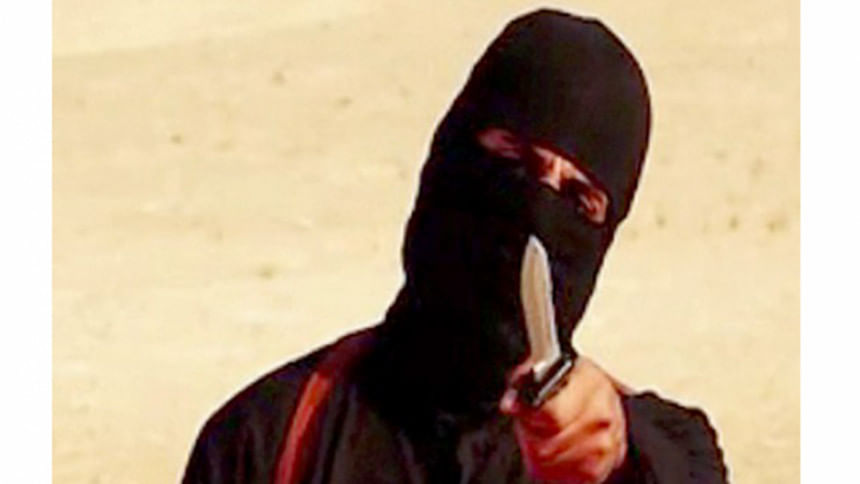US airstrike targets ‘Jihadi John’

US forces have carried out an air strike targeting the Islamic State group militant "Jihadi John", the Pentagon has said.
There is a "high degree of certainty" that he was hit in the attack near Raqqa, in Syria, according to a senior military source.
Mohammed Emwazi, the Kuwaiti-born British militant, appeared in videos of the beheadings of Western hostages.
It is believed there was at least one other person in the vehicle targeted.
A US official told the BBC Emwazi had been "tracked carefully over a period of time".
The Associated Press news agency reported a US official saying that a drone had been used in the attack.
The Pentagon said it was assessing the operation and would provide additional information "as and where appropriate".
A spokeswoman for Prime Minister David Cameron said the government was aware of the US's operation. Cameron is due to make a statement later on Friday.
A source close to the prime minister told the BBC the UK had been working very closely alongside the Americans tracking Emwazi.
Hostage videos
Emwazi is believed to have travelled to Syria in 2013 and later joined Islamic State militants.
He first appeared in a video in August last year, when footage was posted online showing the murder of US journalist James Foley.
He was later pictured in the videos of the beheadings of US journalist Steven Sotloff, British aid worker David Haines and UK taxi driver Alan Henning, as well as American aid worker Abdul-Rahman Kassig, also known as Peter, and Japanese journalist Kenji Goto.
In each of the videos, the militant appeared dressed in a black robe with a black balaclava covering his face.
Initially dubbed "Jihadi John" by the media, he was subsequently named as Emwazi, from west London, in February.
Earlier this year, details emerged about how Emwazi made a number of journeys abroad before he left for Syria in 2013.
They included a trip to Tanzania in August 2009, when he is believed to have first became known to security services in the UK.
His naming this year led to a row over the cause of his radicalisation, with British advocacy group Cage suggesting that contact with MI5 may have contributed to it.
However, Downing Street said that suggestion was "completely reprehensible", with Cameron defending the UK's security services.
Mohammed Emwazi's movements before heading to Syria
-Aug 2009, refused entry to Tanzania: travels to Tanzania with two friends, but is refused entry at Dar es Salaam. Tanzanian police have denied Emwazi's name is on their database of suspected foreign criminals detained and deported in 2009, as he had claimed. Emwazi and his friends are put on flight to Amsterdam, where they are questioned. They return to Dover and are questioned again.
-Sept 2009, travels to Kuwait for work: leaves the UK for Kuwait for work.
-May/June 2010, returns to UK for holiday: he returns to the UK for an eight-day visit.
-July 2010, refused re-entry to Kuwait: Emwazi returns to the UK once more for a couple of days. He is stopped at Heathrow on his return to Kuwait and told he cannot travel as his visa has expired.
-2013, travels to Syria: Emwazi attempts to travel to Kuwait but is stopped and questioned. Three days later, he heads abroad. Police later inform his family he has travelled to Syria.

 For all latest news, follow The Daily Star's Google News channel.
For all latest news, follow The Daily Star's Google News channel. 



Comments